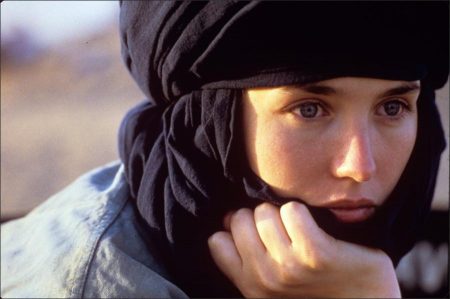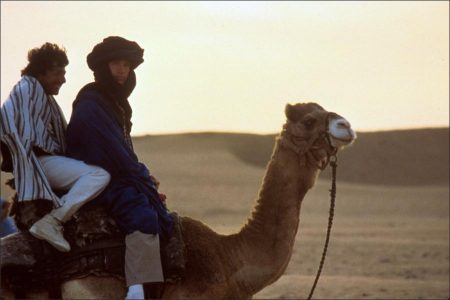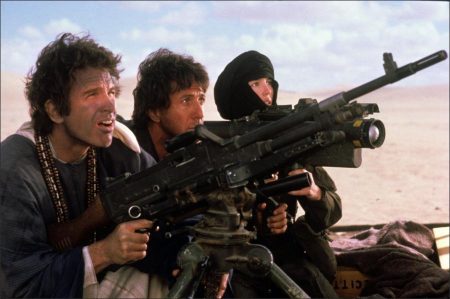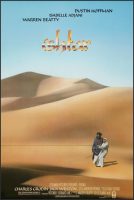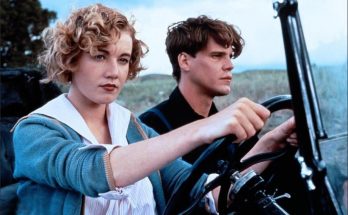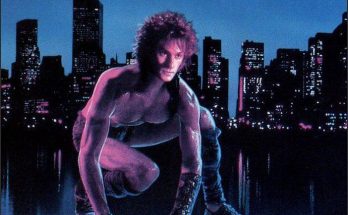Ishtar movie synopsis. Chuck Clarke (Dustin Hoffman) and Lyle Rogers (Warren Beatty) are inept songwriters who are down on their luck, but dream of becoming a popular singing duo in the mold of Simon and Garfunkel. Though they are poorly received at a local open mic night, agent Marty Freed (Jack Weston) offers to book them as lounge singers in a hotel in Marrakesh, Morocco, explaining that the last act quit due to political unrest in the area. Nearly broke, both single and without any better options, Lyle and Chuck decide to take the gig.
When they arrive in the fictional neighboring country of Ishtar, Chuck agrees to give his passport to a mysterious woman who claims her life is in danger. She promises to meet him in Marrakesh. Unfortunately, Chuck learns at the U.S. Embassy that it will take longer than expected to get a new passport. Lyle goes to Morocco in a bid to save their booking while Chuck stays behind.
While alone in Ishtar, Chuck meets CIA agent Jim Harrison. Chuck agrees to be a mole for the CIA and, in return, Harrison uses his pull to get Chuck to Morocco by the next evening. Now together again, Chuck and Lyle unwittingly become involved in a plot to overthrow the Emir of Ishtar. The mysterious woman, named Shirra, has a map that she needs to get to the leftist guerrillas opposing the government of Ishtar. Harrison gets involved when Shirra contacts Lyle and Chuck.
Both Shirra and the CIA attempt to use Lyle and Chuck to further their own agendas, resulting in Lyle and Chuck getting lost in the desert, and unwittingly exposing the CIA’s top secret operation in Ishtar. To keep the situation quiet, the CIA ends up having to back an album written by Rogers and Clarke with a tour kicking off in Morocco. At the kickoff show, Shirra is in the audience and tears up in appreciation. Meanwhile, a military officer orders the rest of the men in uniform that make up the audience to “APPLAUD!” when songs are finished.
Ishtar is a 1987 American action-adventure-comedy film written and directed by Elaine May and produced by Warren Beatty, who co-starred with Dustin Hoffman. The story revolves around a duo of incredibly untalented American lounge singers who travel to a booking in Morocco and stumble into a four-party Cold War standoff.
Shot on location in Morocco and New York City by cinematographer Vittorio Storaro, the production drew media attention before its release for substantial cost overruns on top of a lavish budget, and reports of clashes between May, Beatty, and Storaro. A change in studio management at Columbia Pictures during post-production also led to professional and personal difficulties that undermined the film’s release.
The film polarized critics and became a notorious failure at the box office. Many have considered it to be one of the worst films ever made, although critical support for the film has grown strongly since its release. It was originally released on DVD only in Europe. A director’s cut, running two minutes shorter, was released on Blu-ray in North America on August 6, 2013.
Film Review for Ishtar
It’s hard to play dumb. There’s always the danger that a little fugitive intelligence will sneak out of a sideways glance and give the game away. The best that can be said for “Ishtar” is that Warren Beatty and Dustin Hoffman, two of the most intelligent actors of their generation, play dumb so successfully that on the basis of this film there’s no evidence why they’ve made it in the movies.
“Ishtar” is a truly dreadful film, a lifeless, massive, lumbering exercise in failed comedy. Elaine May, the director, has mounted a multimillion-dollar expedition in search of a plot so thin that it hardly could support a five-minute TV sketch. And Beatty and Hoffman, good soldiers marching along on the trip, look as if they’ve had all wit and thought beaten out of them. This movie is a long, dry slog. It’s not funny, it’s not smart and it’s interesting only in the way a traffic accident is interesting.
The plot involves the two stars as ninth-rate songwriters who dream of becoming Simon and Garfunkel. They perform bad songs badly before appalled audiences. Their agent gets them a gig in Morocco, and once in Northern Africa, they become involved in the political intrigues of the mythical nation of Ishtar. Isabelle Adjani plays the sexy rebel who leads them down the garden path, and dependable Charles Grodin supplies the movie’s only laughs as the resident CIA man.
The movie cannot be said to have a plot. It exists more as a series of cumbersome set pieces, such as the long, pointless sequence in the desert that begins with jokes about blind camels and ends with Hoffman and Beatty firing machineguns at a helicopter. It probably is possible to find humor in blind camels and helicopter gunfights, but this movie leaves the question open.
As I was watching “Ishtar,” something kept nagging at the back of my memory. I absorbed Hoffman and Beatty, their tired eyes, their hollow laughs, their palpable physical weariness as they marched through situations that were funny only by an act of faith. I kept thinking that I’d seen these performances elsewhere, that the physical exhaustion, the vacant eyes and the sagging limbs added up to a familiar acting style.
Then I remembered. The movie was reminding me of the works of Robert Bresson, the great, austere French director who had a profound suspicion of actors. He felt they were always trying to slip their own energy, their own asides, their own “acting” into his movies. So he rehearsed them tirelessly, 50 or 60 times for every shot, until they were past all thought and caring. And then, when they were zombies with the strength to do only what he required, and nothing more, he was satisfied.
That’s what I got out of Beatty and Hoffman in “Ishtar.” There’s no hint of Hoffman’s wit and intelligence in “Tootsie,” no suggestion of Beatty’s grace and good humor in “Heaven Can Wait,” no chemistry between two actors who should be enjoying the opportunity to act together. No life.
I don’t know if “Ishtar” was clearly a disaster right from the first, but on the evidence of this film, I’d guess it quickly became a doomed project and that going to the set every morning was more like a sentence than an opportunity. It’s said this movie cost more than $40 million. At some point, maybe they should have spun off a million each for Hoffman and Beatty, supplied them with their own personal camera crews and allowed them to use their spare time making documentaries about what they were going through.
Ishtar (1987)
Directed by: Elaine May
Starring: Warren Beatty, Dustin Hoffman, Isabelle Adjani, Charles Grodin, Jack Weston, Tess Harper, Carol Kane, Aharon Ipalé, Cristine Rose, Rose Arrick
Screenplay by: Elaine May
Production Design by: Paul Sylbert
Cinematography by: Vittorio Storaro
Film Editing by: Richard P. Cirincione, William Reynolds, Stephen A. Rotter
Costume Design by: Anthony Powell
Set Decoration by: Jim Erickson
Art Direction by: Peter Childs
Music by: Dave Grusin
Distributed by: Columbia Pictures
Release Date: May 15, 1987
Views: 152
